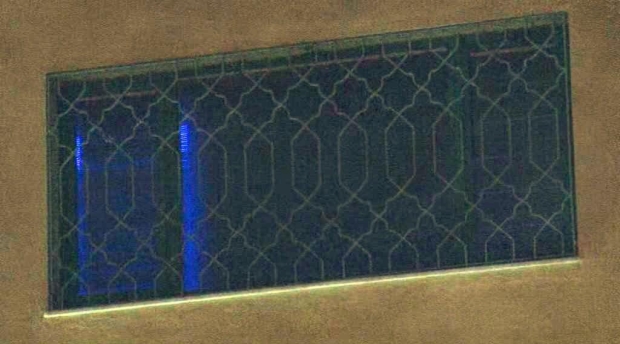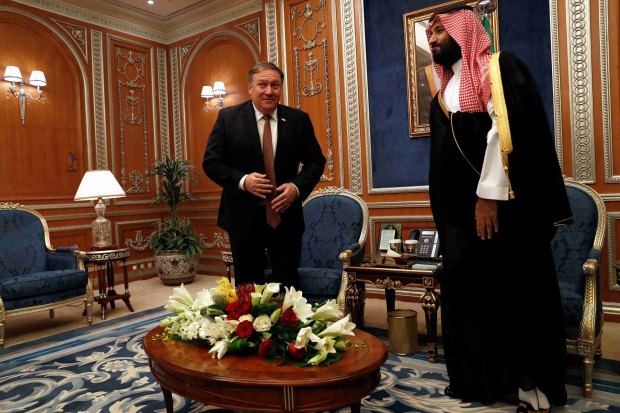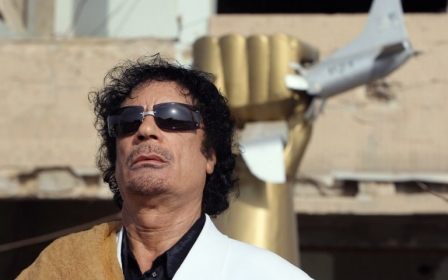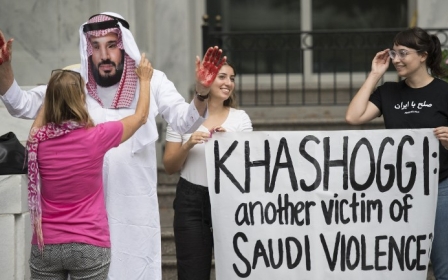'Certain evidence' of Khashoggi's murder found in consulate: Report
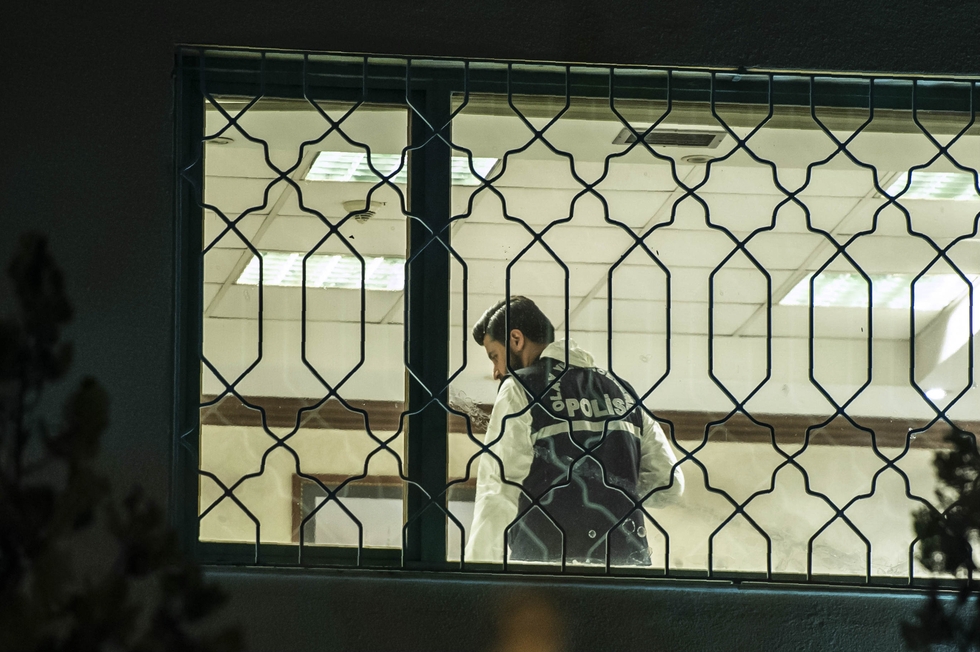
“Certain evidence” of Jamal Khashoggi’s murder has been found by police in the Saudi consulate in Istanbul, a high-level official told the Associated Press on Tuesday.
The Turkish official, who spoke on condition of anonymity, did not elaborate on the evidence found.
Meanwhile, the Saudi consul-general Mohammad al-Otaibi left Istanbul for Riyadh on a scheduled flight, as Turkish investigators were poised to search his residence.
On Monday a team of Turkish investigators and forensics experts entered the consulate 13 days after the prominent Saudi journalist was last seen walking into the building.
They spent nine hours searching the building, security sources told Middle East Eye, and took samples of soil from the garden.
According to the sources, these samples will be a priority of the investigation.
Sources have told MEE that Khashoggi was tortured, murdered and dismembered after he entered the consulate on 2 October.
Turkish authorities have told MEE that they have video and audio recordings of the journalist’s alleged murder, and found evidence of blood in the consulate’s sewerage system before being allowed into the consulate.
A Turkish source involved in the investigation told MEE the probe on Monday had been meticulous.
“We went inside all the rooms, without any exceptions. We got into the exclusively protected rooms with high-level security where they have their cryptosystems, also the rooms which are secured against any audio recordings,” the source said.
“We got everything we wanted and took it with us out of the consulate to continue investigation. We didn’t dig the garden but searched it with dogs and took some samples.”
According to the source, the investigators took hammers to some walls and flooring to explore behind them.
A photo widely published in Turkish media and obtained by MEE appeared to show investigators using ultra-violet forensic equipment to search the consulate building for evidence. MEE understands that the Saudis were reluctant to let Turkish investigators use luminol equipment in their probe.
There was also disagreement over whether investigators would be allowed into the consulate-general’s house.
Although the Saudis relinquished to Turkish demands to probe the consulate and consul-general’s house, investigators were only allowed into the residency on Tuesday evening.
The consul-general left Istanbul for Riyadh on a 2pm flight, hours before investigators were permitted to enter his home.
A senior Turkish source revealed to MEE last week that Khashoggi was lured into the consul-general's office after he entered the consulate, before being dragged into another room and murdered.
"We did not send him out. He left Turkey of his own accord," a Turkish foreign ministry source said of the consul-general to CNN-Turk.
Saudi officials have strongly denied any involvement in his disappearance and say that he left the consulate soon after arriving. However, they have not presented any evidence to corroborate their claim and say that video cameras at the consulate were not recording at the time.
MBS feeling the heat
The AP report comes as US Secretary of State Mike Pompeo visits Riyadh for crisis talks with Saudi King Salman and his powerful son, Crown Prince Mohammed bin Salman (MBS).
During his meeting with Pompeo, MBS reiterated the US and Saudi Arabia's close ties, while America's top diplomat expressed concern over Khashoggi's fate.
Pompeo is expected in Turkey on Wednesday for further consultations.
Turkish officials have drip fed the media details of their investigation into Khashoggi's disappearance.
In an attempt to stop the fallout from snowballing any further, late last week King Salman sent trusted lieutenant and Mecca governor Khaled bin Faisal to Turkey to strike a deal with President Recep Tayyip Erdogan, a high-level Turkish source told MEE.
"He literally begged the president to save them,” the source said.
Nothing happens in Saudi Arabia without MBS knowing it. This guy is a wrecking ball
- US Senator Lindsey Graham
US media reported on Monday that the Saudis were planning to announce that Khashoggi died in a botched interrogation.
It was not clear how they would explain the widely reported presence of a bone saw and forensic pathologist in the Saudi team sent to the consulate on the day of Khashoggi's disappearance.
The report came soon after US President Donald Trump said "rogue killers" may be behind the journalist's death.
Such a line would help insulate MBS from the scandal. The powerful young prince, who has spent millions of dollars promoting his image in the West, has been tarred badly by Khashoggi's presumed murder.
Turkish officials have told MEE that three of the 15-man hit squad allegedly sent by Riyadh to Istanbul for the operation came from MBS's personal bodyguard.
Khashoggi told MEE that one of the crown prince's closest aides was the person who first told the journalist he had fallen out of favour with the royal court. The order to stop writing and tweeting, which forced Khashoggi from his country, would have come from the very top, he said.
In a sign of MBS's plummeting clout in Washington, senior Republican Senator Lindsey Graham blamed the prince for the murder and said that he is “going to sanction the hell out Saudi Arabia” during an appearance on the Fox and Friends news show on Wednesday morning.
"Nothing happens in Saudi Arabia without MBS knowing it," Graham said on Trump's favourite TV show. "This guy is a wrecking ball. He had this guy murdered in a consulate in Turkey and to expects me to ignore it. I feel used and abused."
Middle East Eye propose une couverture et une analyse indépendantes et incomparables du Moyen-Orient, de l’Afrique du Nord et d’autres régions du monde. Pour en savoir plus sur la reprise de ce contenu et les frais qui s’appliquent, veuillez remplir ce formulaire [en anglais]. Pour en savoir plus sur MEE, cliquez ici [en anglais].


